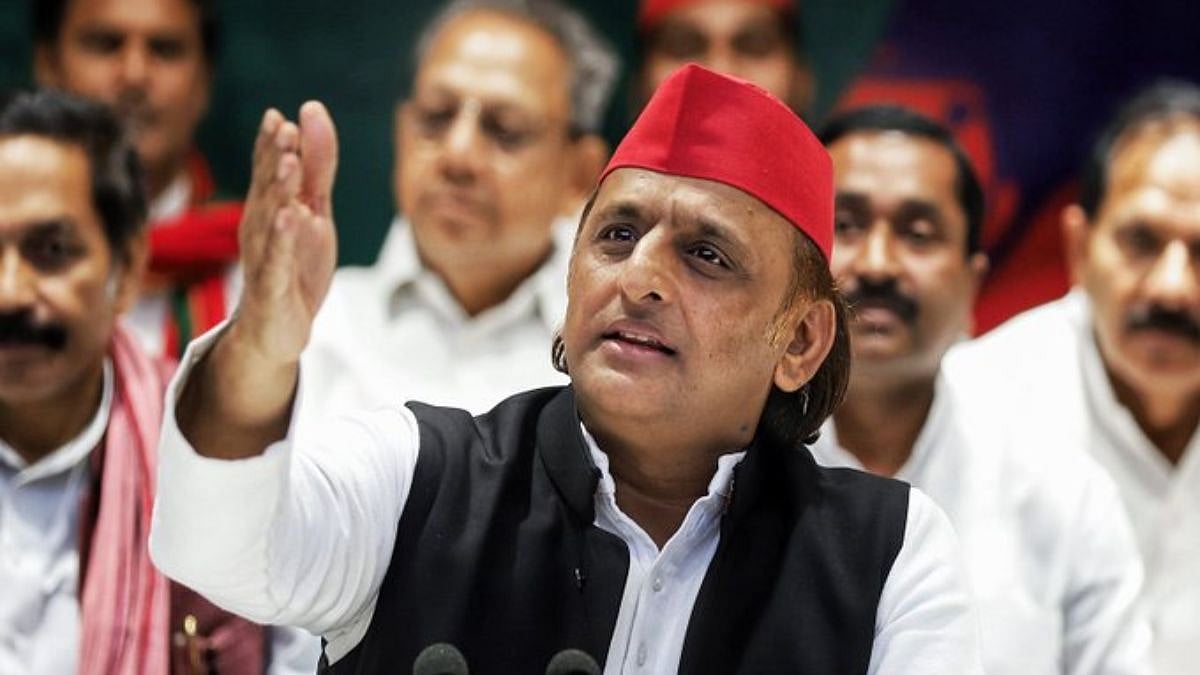The Congress has tied up with perfume baron Badruddin Ajmal's All-India United Democratic Front (AIUDF), in the hope that the alliance will get within sniffing distance of a majority in the upcoming Assam assembly elections.
The Congress-Left-AIUDF front, announced earlier this week, is being seen as a calculated risk, as it augurs a sharp polarisation of votes in the north-eastern state. The Congress high command apparently took the decision on the strength of a voters' survey, after an intense internal debate on the pros and cons of the proposed tie-up over the last one year.
Prior to 2019, Congress leaders in Assam, notably three-term chief minister Tarun Gogoi, had opposed any truck with Ajmal. They argued that the AIUDF was seen as a ‘communal’ party committed to protecting the interests of the immigrant minority population and allying with it could cost the Congress its Hindu vote.
Nitish Kumar role
Ironically, it was Bihar CM Nitish Kumar, who had quietly lobbied for a ‘mahagathbandhan’-style alliance in Assam before the 2016 assembly elections. Gogoi was disinclined, for the reasons cited above. The NDA swept to power and Sarbananda Sonowal became the state's first BJP CM.
Gogoi changed his mind last year and the two parties joined hands to ensure the election of anti-CAA journalist-activist Ajit Kumar Bhuyan to the Rajya Sabha. Shortly thereafter, Gogoi passed away, but the Congress central leadership kept up talks with Ajmal and tied up with the AIUDF for elections to the Bodoland Territorial Council (BTC) in December last year.
The two parties were on the same page vis-a-vis the Citizenship Amendment Act (CAA), but their tie-up could well have been read as ideological convergence. This, as well as the signing of the Bodo accord with the Centre in January last year, led to a humiliating defeat for the Congress in the BTC elections. It won just one of 40 seats and the AIUDF none.
Congress MLA Rupjyoti Kurmi spoke for many of his colleagues when he said his party had lost as a result of the alliance with the AIUDF. The lone Congress member in the BTC defected to the BJP, as did Congress leaders such as Kamal Kumar Medhi.
The BJP followed up the win by sweeping the Tiwa Autonomous Council (TAC) elections. The significance of these victories was not lost on the Opposition: clearly, the sub-nationalism sparked by protests against the CAA was not as strong as anticipated.
Anti-CAA sentiment
That said, there is no denying the anti-CAA sentiment among indigenous Assamese-speaking voters, who resent the potential legitimisation of illegal Bengali-Hindu migrants. They hold sway in some 36 assembly constituencies, of which the Congress won just four in 2016.
But whether the Congress will be able to take full advantage of the anti-CAA vote is debatable, given that local forces like the Assam Jatiya Parishad (AJP), for whom the scrapping of the CAA is the central issue, are likely to take away a sizeable chunk. Earlier this month, both the AJP and the All Assam Students’ Union (AASU) declared that they would not join the grand alliance against the NDA.
The BJP has long averred an unofficial understanding between the Congress and the AIUDF, as the latter had chosen not to field a candidate against Gogoi's son, Gaurav, in the 2019 Lok Sabha elections. It will now leverage the tie-up to the fullest, particularly in upper Assam, which comprises seven districts.
Minority vote matters
On the other hand, Assam has a significant minority vote, close to 35 per cent, almost all of which will benefit the grand alliance. It anticipates a minimum of 45 seats on the strength of a combined minority vote. Also to its advantage is the recent trouble between the BJP and the Bodoland People's Front (BPF), which led to the former backing the United People’s Party Liberal (UPPL) and the Gana Suraksha Party (GSP) in the BTC.
Formerly an ally of the Congress, the BPF tied up with the BJP in 2016 and has 12 seats in the assembly and three cabinet berths. The BJP and BPF have yet to announce a formal split and the former is clearly banking on the Bodo accord of 2020 and new allies, to secure the crucial Bodo vote.
The Congress justifies its tie-ups with right-wing parties - the Shiv Sena in Maharashtra and the AIUDF in Assam – on the grounds that keeping the BJP out of power is the priority. Whether the smell of opportunism becomes the sweet scent of victory for the ‘grand alliance’ remains to be seen.
The writer is a senior journalist with 35 years of experience in working with major newspapers and magazines. She is now an independent writer and author.




